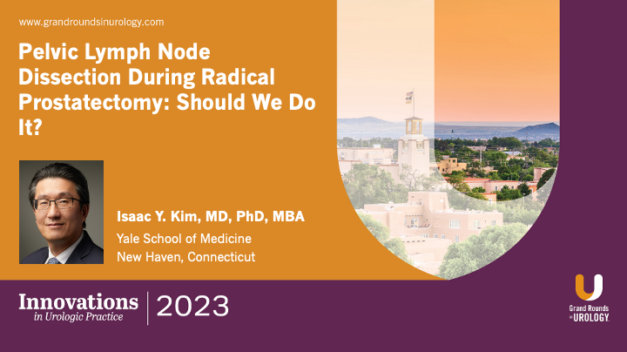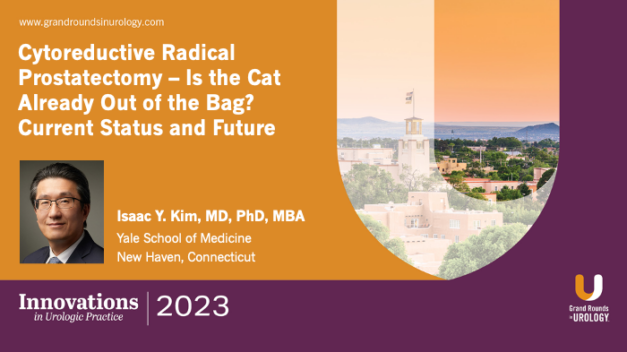Pelvic Lymph Node Dissection During Radical Prostatectomy: Should We Do It?
Isaac Y. Kim, MD, PhD, MBA, debates the benefit of Pelvic Lymph Node Dissection (PLND) during radical prostatectomy. He suggests there is no definitive evidence on PLND’s clinical benefit, no proven survival benefit, and no effective adjuvant radiotherapy. In his experience, he counsels patients according to the marginal benefit of PLND vs risks. Kim suggests there is a controversy as there is no consensus on PLND indication. In his opinion, the cutoffs do not make sense as the risks and benefits have to weigh and balance – the debate is not necessary if the risk of PLND is minimal. He describes a patient with cautery injury to the external IAC vein, which could have been a disastrous event, suggesting most data shows EPLND is associated with increased risk of complications. When comparing outcomes of patients with limited vs extended template node dissection, there is a lot of data that shows no significant survival benefit (Lestingi et al, Eur Urol 2021). While some data shown adjuvant treatment may make some difference, in his patients at Rutgers, patients who had pathologic N1 disease, compared limited template vs. extended template (EPLND) a showed a 3 year progression free survival and subgroup analysis stratified by lymph node metastasis showed no survival benefit. He doesn’t recommend EPLND given current data, considering the 2% cutoff is too conservative, and recommends a 5-7% cutoff. He questions the ability of ongoing clinical trials to answer questions of dissection, suggesting trials must demonstrate benefits for removal and then subsequent therapy. Kim is designing a clinical trial at Yale to determine if not performing PLND is superior to performing PLND at the time of radical prostatectomy.
Read More

